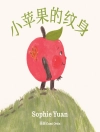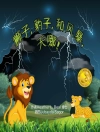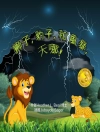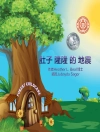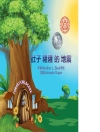Maybe You!
Entertaining, Instructional, and Comprehensive
My brain is like a great white shark
always hunting knowledge in the dark.
So shout it—CURIOSITY!
Yes that is how you measure me.
from “My Curious Brain”
Young minds will shift into overdrive as they encounter the history, philosophy, and principles of scientific inquiry—all irresistibly packed in this poignant yet comical collection of dramatic poems, monologues, and short plays.
Calling on the time-honored principle that children remember “90% of what they do in dramatic presentation, ” Maybe You! is the first book in the long-awaited Brod Bagert’s He ART of Science series, providing parents, teachers, and young learners with a comprehensive compendium of dramatic content literature, both entertaining and instructional.
In “On the Field with the Pros, ” Tamara experiences the thrill of conducting her own research to debunk the myth of the Egyptian crocodile bird. In “New Brain Magic, ” Caroline and Javier explore the elements of critical thinking as they collaborate to concoct a magic potion “to turn normal brains into brilliant scientific wonders.” And in “Real Monsters, ” a child discovers the revelatory power of scientific instruments when observing dust mites and maggots, through a microscope, and concludes that real monsters do indeed exist, “but they’re very, very small.”
The essence of curiosity, the joy of critical thinking, the power of the scientific method, the tools of science, the relationship between technology and scientific discovery, publication and peer review, the progression of scientific knowledge with each generation “standing on the shoulders of Giants, ” it’s all here.
The collection concludes with “Knowledge in Motion, ” which describes the progression from Newton’s revolutionary Laws of Motion to Einstein’s even more revolutionary Theory of Special Relativity and drives to an empowering conclusion:
So you see how our knowledge keeps inching along.
It seems perfect today, but tomorrow it’s wrong.
And who will be next to propose something new?
First Newton, then Einstein, and next…Maybe you?
from “Knowledge in Motion”
विषयसूची
Good and Goofy Teachers as artists and the power of content literature
Someone Just Like You Young people with questions as the next generation of scientists
Tinker-Thinker Relationship between tools and science
Time Master Telling time and the relationship between engineering and scientific discovery
Stinky Feet An unflattering survey of the US system of measurement
The Joy of “10” A flattering presentation of the metric system
Real Monsters Scientific tools extending the reach of human senses
My Curious Brain Curiosity as the engine of scientific discovery
Open Up Learning to question published material: books, Internet, etc.
The Calculus Battle Dual discovery in science and math as a scientific tool
Questions and Answers Asking questions as the threshold of discovery
Standing on the Shoulders of Giants Publication, peer review, replication of results
On the Field with the Pros An example of critical thinking debunking a historic scientific myth
Sorry Bird Reason vs. Authority
Detention, an A+ in Science, and My Reggae Teacher Scientific inquiry by the numbers
A Pendulum Surprise Learning from “failed” experiments
New Brain Magic Scientific inquiry played out in a magical incantation
Marriage of Pure and Chore A science and technology sonnet
Progress Application of science and aesthetics
Mad Scientist A playful introduction into ethical questions and the application of science
Knowledge in Motion Science as an ever growing, self-correcting continuum
An Invitation to You
लेखक के बारे में
Poet Brod Bagert is the author of over eighteen books of poetry for children, young adults, and adults. A former lawyer and New Orleans City Councilman, Bagert penned his first poem as a favor to his daughter, who needed a poem to recite in a school program. Bagert realized that few poems written in children’s voices were available, and so wrote one himself. Since then, he has helped change children’s poetry in America, focusing on performance as well as the poem itself. According to Timothy Rasinski, a literacy instructor at Kent State University, Bagert’s poems allow children to ‘create art’ when they perform them. ‘Since he is one of the few poets to truly write in the voice of a child, it’s easy for students to use his material for expressiveness, ‘ Rasinski told the New Orleans Times Picayune in a feature on Bagert. The Picayune noted that part of Bagert’s appeal to children was his ability to capture their
swirling moods and emotions: ‘Bagert’s verses often feature the private emotions-raw, complex, humorous-of youthful characters he created.’


